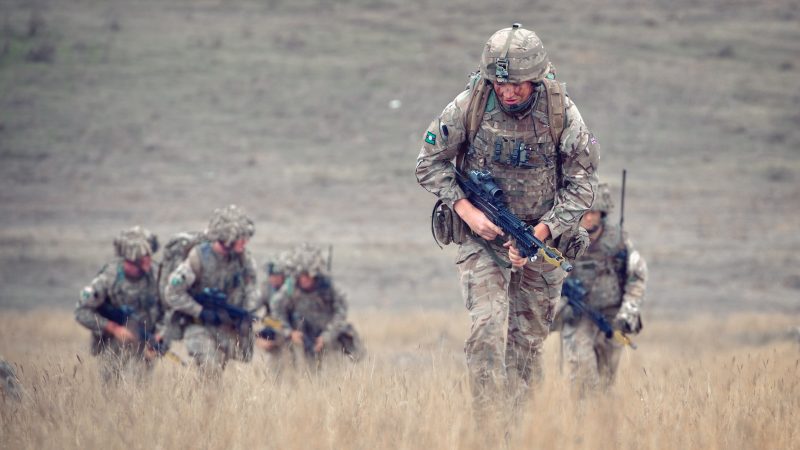
The UK government is getting ready to defy international law for the second time in two weeks. Before parliament this afternoon for its second reading, the overseas operations (service personnel and veterans) bill is their latest attempt to use domestic law as a means of reneging on the UK’s international obligations.
In current form, this bill effectively decriminalises torture, violates essential rule of law principles such as judicial and prosecutorial independence, and defies international human rights law. Just a week after Boris Johnson ripped up his own “oven-ready” Brexit deal (the withdrawal agreement), it would mean soldiers cannot be prosecuted for war crimes if five years have passed since the alleged date of the incident. Given the time scale involved with reporting most war crimes, this would provide British soldiers with de facto immunity for acts of torture and other breaches of the Geneva Convention.
This has obvious and disastrous implications for upholding justice for the victims of war crimes. The overwhelming evidence suggests that some British soldiers did commit acts of torture and other breaches of the Geneva Convention during the US-UK led wars in Iraq and Afghanistan. Thousands of complaints of mistreatment have been lodged by Iraqi and Afghan civilians. Only last month, evidence came to light that the Ministry of Defence had withheld evidence relating to the possible execution of 33 Afghan civilians in 2011.
In spite of this, there have been few prosecutions and even fewer convictions, with the director of the Service Prosecution Authority (SPA) ruling out further legal action against accused soldiers who served in Iraq and Afghanistan in all but one case. There have been just seven prosecutions arising from the Iraq war. All of this is not to deny that vexatious claims against military personnel are a possibility, but rather that it’s pure confection to suggest the problem requires this kind of extreme solution.
Clearly, this bill is not really about protecting veterans, which is why it has no support from senior legal military figures. Judge Advocate General Jeff Blackett – Britain’s most senior military judge, who was not even consulted before this legislation was published – has called on the Defence Secretary to “think again” about these “ill-conceived” proposals.
The government claims that this is about patriotism and standing up for our military personnel, but its bill would actually restrict the time in which soldiers can make claims against the Ministry of Defence. How exactly does this support troops who face conditions such as PTSD years later? If this government really cared about UK veterans, it would do something to address the plight of the thousands of veterans left to sleep rough on the streets or failed by inadequate mental health services.
The real thrust of this bill is twofold. Firstly, to shield the MoD and government from being held to account for their foreign adventures. Secondly, perhaps the key strand of the Dominic Cummings-Boris Johnson project, to concentrate power in the hands of the executive. Enabling the Attorney General to decide whether accusations merit prosecution is putting what should be an independent prosecutorial decision in the hands of a political appointee. In other words, allowing the government to mark their own homework.
Passing this bill would send yet another clear message that the UK government is above the law. It is therefore disappointing to see that many of those who were willing to take a stand against violating international law under on the subjects of trade and Brexit are less concerned about violating international law on human rights.
We don’t set time limits on serious domestic offences, so why would we set these on offences committed overseas? We cannot say that Black Lives Matter, then turn a blind eye to the decriminalisation of torture of Black and Brown people in other countries. All human rights matter. All human rights must be protected.
There’s nothing remotely patriotic about rejecting international law and decriminalising torture. It just leaves British soldiers and civilians around the world less safe. That’s why, along with colleagues in the Socialist Campaign Group, I’ve tabled a reasoned amendment to throw out the overseas operations bill this evening.
We must unequivocally condemn any legislation that decriminalises torture, defies international law and does nothing to protect troops from false claims, all to limit transparency around military interventions and further enhance the executive power of this self-serving, self-interested government of the few.




More from LabourList
‘Unity or division’: Starmer’s message to voters in Gorton and Denton
Almost half of Labour members oppose plans to restrict jury trials, poll finds
‘How Labour can finally fix Britain’s 5G problem’